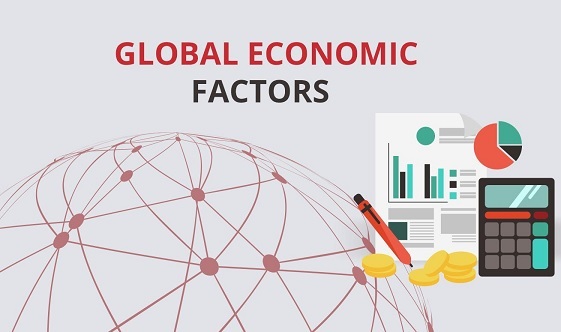
Understanding global economic factors involves recognizing the various elements that influence the overall health and performance of the world economy. Here are key components to consider:
Gross Domestic Product (GDP):
-GDP measures the total value of goods and services produced within a country's borders.
-Global economic health is often assessed by examining the combined GDP of major economies.
Global Trade:
-The volume of international trade significantly impacts the global economy.
-Factors include tariffs, trade agreements, and barriers to trade.
Exchange Rates:
-Currency exchange rates affect international trade and investment.
-Fluctuations impact the competitiveness of goods and services in global markets.
Interest Rates:
-Central banks' interest rate decisions influence borrowing costs globally.
-Changes in interest rates can affect investments, currencies, and economic growth.
Inflation:
-Inflation rates impact the purchasing power of currencies.
-Central banks aim to maintain stable inflation levels.
Employment and Unemployment:
-Global employment trends can indicate economic health.
-Unemployment rates can affect consumer spending and social stability.
Global Financial Markets:
-Stock markets, bond markets, and commodity markets are interconnected globally.
-Financial market performance reflects investor confidence and economic conditions.
Government Fiscal Policy:
-Government spending, taxation, and budgetary policies impact economic stability.
-Fiscal policies may vary across countries.
Monetary Policy:
-Central banks' decisions on money supply and interest rates influence economic conditions.
-Coordination or divergence in monetary policies affects global financial markets.
Political Stability:
-Political events and stability impact investor confidence.
-Political risk can affect trade and investment decisions.
Technology and Innovation:
-Technological advancements and innovation drive economic growth globally.
-Access to technology influences competitiveness.
Global Supply Chains:
-Interconnected supply chains link economies.
-Disruptions in one region can have cascading effects on others.
Geopolitical Events:
-Wars, conflicts, and geopolitical tensions influence economic stability.
-Trade sanctions and geopolitical alliances impact global trade.
Environmental and Climate Factors:
-Climate change and environmental policies can affect industries and economies.
-Sustainable practices are gaining importance in economic discussions.
Demographics:
-Population trends, aging populations, and migration patterns impact economic growth.
-Labor force changes affect productivity and consumption.
Global Health Crises:
-Events such as pandemics can have widespread economic consequences.
-Health crises impact trade, travel, and various industries.
Understanding these global economic factors requires ongoing monitoring, analysis, and awareness of the interconnected nature of the world economy. Policymakers, businesses, and investors all consider these factors when making decisions that can have implications far beyond national borders.